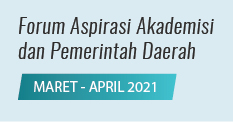Fiscal context. The fiscal context refers to a government’s current and expected future capacity to spend. A good measure of the current fiscal context is the ratio of public expenditure (or revenue) to GDP. Global evidence (Schieber and Maeda 1997; Gottret and Schieber 2006) indicates that richer countries tend to be more effective at mobilizing tax revenues (relative to the size of their economies). Tax collection is usually more difficult in poorer countries because a higher proportion of the population tends to live in rural areas or work in the informal economy. As shown in Chapter 3, this relationship between national income and fiscal capacity also applies to the CE/EECCA countries. However, it is not a completely deterministic relationship; individual countries exhibit substantial variation around the trend. Other important factors affect fiscal capacity, including demography (size of the working-age population relative to the entire population) and the effectiveness of the tax system itself (for example, ability to enforce compliance, collections and so on). Of course, public policy choices in terms of the mix of taxes and level of tax rates are also important. These factors indicate why it is essential to understand the fiscal situation and not just the level of income when analysing the context surrounding health financing policy in a specific country.
Public sector financial management system. The public finance context involves not only understanding the capacity of the state to mobilize tax revenue, but also understanding how the wider public sector management system operates. This environment encompasses areas such as civil service regulations and the rules governing public sector financial management. This system provides an incentive environment that enables health financing reforms to have their intended consequences; conversely, it may inhibit implementation of certain health financing reforms or provide a set of perverse incentives that cause reforms to have undesired consequences. Experience with health financing reforms in CE/EECCA countries reveals that failure to consider this wider environment results in either perverse consequences an inability to implement these reforms.
Political–administrative structure. A third critical contextual factor for health financing policy is the structure of government or, put another way, the extent of political–administrative decentralization within a country. This can be critically important because the structure often has direct implications for the organization of certain health financing sub-functions (mostly pooling and purchasing, and often service provision as well). In Bosnia and Herzegovina, for example, the organization of the health financing system mirrors the organization of the highly decentralized government administration, resulting in decentralized pooling arrangements (social health insurance fund pooling and purchasing at the level of cantons and entities, with little or no scope for cross-subsidy between them). Further, organization of public provision is also fragmented in this way, and the combination contributes to inefficiency in the form of excess capacity (Cain et al. 2002). Similarly, in many former Soviet countries, inherited arrangements for pooling, purchasing and service provision were vertically integrated and organized by level of government (republican, oblast and rayon). In these countries, the health financing reform agenda has had to address the “decentralization” agenda. Here, and elsewhere, conflicts arise when part of the health financing reform agenda has been to centralize pooling (in order to improve risk protection), when other sectors of government are decentralizing.
 Implementing Health Financing Reform
Implementing Health Financing Reform
![]() Blended Advocacy - Monitoring dan Evaluasi Program Jaminan Kesehatan Nasional Tahun 2015 (Individu)
Blended Advocacy - Monitoring dan Evaluasi Program Jaminan Kesehatan Nasional Tahun 2015 (Individu)













